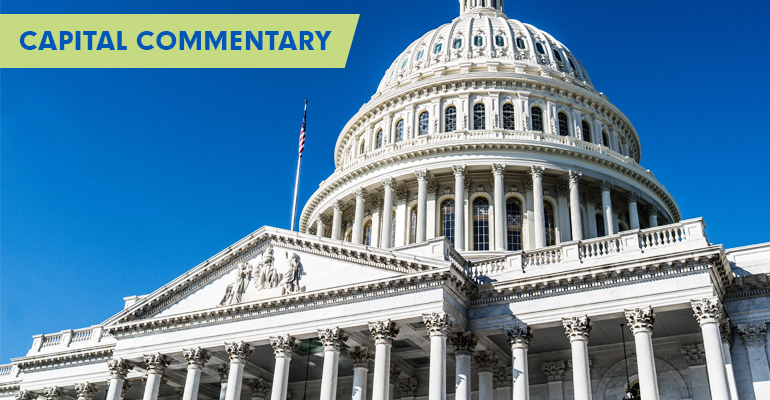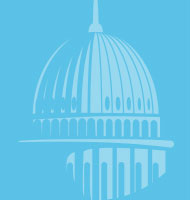
Labor Day is the traditional kickoff to the presidential campaign. Election Day is now just weeks away. Our inaugural newsletter focuses on the record and aims of the Donald Trump-Mike Pence administration in regard to housing, while our next issue will cover the Joe Biden-Kamala Harris platform’s housing policies. Share the web link with friends and clients.
Make 2020 2016 Again
Instead of creating a new 2020 platform of issues, the GOP basically reissued the 2016 version.
We don’t have a roadmap for where the Trump administration would go in a second term, but we can review its first four years for clues:
Generally fewer government regulations. Affirmatively Furthering Fair Housing? Gone. Regulatory barriers to affordable housing? They are on the firing line.
But a couple of new regulations, too: Protecting homeowners and renters impacted by COVID-19.
Make America’s Suburbs Safe Again
President Trump turned to Twitter when he repealed the Obama-era Affirmatively Furthering Fair Housing (AFFH) regulation, clearly the most controversial housing policy decision of the first term.
- AFFH required communities receiving HUD funds to create plans to promote fairness and inclusion in housing. The cities were required to use data on demographics, employment, education and other information to identify patterns of racial bias.
- “People living their Suburban Lifestyle Dream” won’t have to worry about low-income housing “moving in,” Trump tweeted in late July. “Your housing prices will go up based on the market, and crime will go down.” The election is likely to be decided by suburban voters, so expect this theme to be prominent over the next few weeks.
- HUD Secretary Ben Carson called the regulation “unworkable” and a “waste of time.”
- The Wall Street Journal criticized the rule for essentially requiring counties to change land use and zoning to evenly distribute minorities across neighborhoods. In its editorial, the paper added that AFFH “also contravened a Supreme Court [decision] … that affirmed the Fair Housing Act ‘is not an instrument to force housing authorities to reorder their priorities’ or ‘decree a particular vision of urban development.’”
- Researchers at the free-enterprise-oriented Mercatus Center of George Mason University blamed housing affordability and segregation on local zoning rules.
Make Housing Affordable Again
… by reducing regulations, of course.
In mid-2019, President Trump created the Council to Eliminate Regulatory Barriers to Affordable Housing at the urging of the National Association of Home Builders and the National Association of Realtors®. The Council, under HUD’s leadership, was to study the issue for a year and issue a report of its recommendations to mitigate the burdens of regulations.
- The White House acknowledged a severe shortage of affordable homes, citing “a multitude of regulatory barriers” at the federal, state, local and tribal levels of government that hinder the development of housing.
- Overly restrictive zoning, growth-management controls and environmental regulations were three major causes, according to the administration.
- Large, Democrat-led cities were called out for excessive regulations that are driving up home prices in this year’s annual report of the Council of Economic Advisors. The report specifically chided San Francisco, Honolulu, Los Angeles, San Diego, Washington, D.C., Boston, Denver, New York, Seattle and Baltimore.
- One city not on that list: Minneapolis. It eliminated restrictive “single-family-only” zoning everywhere in the city in the hope that large homes could be converted into multiple units to address affordability and segregation concerns.
What is the administration recommending? We don’t yet know. Several roundtables were held with an array of housing organizations concerned about the lack of affordable housing and regulatory burdens, but it appears the Council’s final report is delayed, likely due to HUD’s focus on addressing housing problems created by the COVID-19 pandemic.
Make Homeowners and Renters Secure Again
Soon after the onset of the pandemic, the Trump administration announced that Fannie Mae, Freddie Mac, HUD and other government housing agencies would offer forbearance for borrowers impacted by the virus. The agencies would neither evict nor put homeowners into foreclosure.

Now the administration is taking steps to protect renters, too. The Centers for Disease Control is using its authority to protect renters from eviction until at least Dec. 31, according to the White House.
Under an Executive Order, renters who “have exhausted their best efforts to pay rent, seek governmental rental assistance and are likely to become homeless due to eviction,” will be protected. They will still have to pay accrued rent in accordance with their lease or contract.
Take Housing Policy to a Deeper Level. Arch MI’s new PolicyCast podcast series explores current issues shaping housing in America. Our inaugural episode features Jim Parrott, a noted housing consultant who was the Obama administration’s face of housing policy. Jim sat down with me for a deep dive into the proposed capital standards for Fannie Mae and Freddie Mac, which will have significant ramifications for borrowers and the housing finance system.
Watch for future editions every two weeks on Arch MI’s Insights website and by following us on our social media channels. As mentioned above, our second issue will cover the Joe Biden-Kamala Harris campaign’s policies on housing.
Next up? Former Freddie Mac CEO Don Layton on the benefits of the GSEs transferring credit risk to private investors. Look for the new PolicyCast podcast episode beginning Sept. 14.

Following this edition, Capital Commentary moves to every other Tuesday. It will be available on Arch MI’s Insights Blog and a variety of social media platforms.

Do you think Capital Commentary offers valuable information on housing policy and its potential impacts? If you do, share your comments with us. Your feedback will help ensure Capital Commentary covers the stories that have the most impact on your business.

About Arch MI’s Capital Commentary
Capital Commentary newsletter reports on the public policy issues shaping the housing industry’s future. Each issue presents insights from a team led by Kirk Willison.
About Arch MI’s PolicyCast
PolicyCast — a video podcast series hosted by Kirk Willison — enables mortgage professionals to keep on top of the issues shaping the future of housing and the new policy initiatives under consideration in Washington, D.C., the state capitals and the financial markets.
Stay Updated
Sign up to receive notifications of new Arch MI PolicyCast videos and Capital Commentary newsletters.